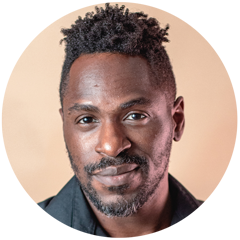Black before anything else
My story of racist reconditioning in America
Being born African has done wonders for my self-esteem. I grew up in a place where Black is the majority, and I wasn’t exposed to western media’s constant negative perception and portrayal of the continent or its inhabitants.
“…I grew up proud, not dehumanized or insecure and uncomfortable in my own skin.”
I was aware of my country’s faults, and failures, most of which have been so obvious that the citizens themselves would hardly tell you that they have been unknowingly deceived. But most of our issues are rooted in a history where the basic human rights of the people were entirely taken away. We are still picking up the pieces, a process bound to be riddled with corruption and confusion, and yet I grew up proud, not dehumanized or insecure and uncomfortable in my own skin.
The first time I encountered racism, the first time I felt racism, was when I moved to America for the first time. In school, my fellow students would make comments about how dark I was, and would tell me to stand next to African American students to validate just how dark I was. At some point even the African American students made fun of my complexion. Now, to see me I’m not that dark, but you could tell I wasn’t from around here.
But, I had never experienced racism before and I didn’t understand what it was so, ultimately I was unaffected by that experience. When the other students didn’t get the reaction they expected they eventually stopped making fun of me.
It shames me a bit to say, but even after I got a bit older and was exposed to brutalities of racist actions and vernacular, I largely thought, “Oh well, I’m African, this has nothing to do with me.” The way in which I self-identified had little to do with what color my skin was but rather where I was from and what I could do. Honestly, to this day, a part of me still thinks that way.
The difference today is that America has now fully taught me to see myself as black before anything else: black before African, black before college graduate, black before marketing and communications professional with almost a decade of work experience.
“…I’m actively trying to avoid falling into “accidental” moments of racism…”
I am no less proud of my heritage or myself, but now I’m conscious, cautious, and overly aware. I think twice about going out for a jog at night, I try not to wear loose or baggy clothing when grocery shopping, I try to stay in plain view when walking behind or beside a police officer in the streets or subway, and let’s not even discuss getting behind the wheel of a car while being black.
In some ways you could say from the moment I leave my front door till the moment I get back home I’m actively trying to avoid falling into “accidental” moments of racism, and even potentially becoming yet another unintended law enforcement statistic.
If these are the tactics that I have to resort to, and I’m not even the most affected of black people, imagine what others less fortunate and privileged than myself go through.
Every black person in your life has stories like this, and has new ones to share almost every day. That’s really what it means when black people chant “Black Lives Matter;” not that other lives don’t matter, but other lives aren’t murdered simply because someone thought they were too dark, especially in 2016. Everyday can feel like a struggle to stay alive when you could be shot arbitrarily because people view you as black first; and not even just black first, but the demonized and institutionalized perception of a black person, and worse still—a black man.
My friends will sometimes joke and say “You’re the whitest black person I know”…I wonder if that will save my life if ever I’m standing at the end of a loaded gun in the hands of a police officer.

